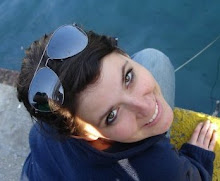It’s only been ten days since I have been here, but I have already become what you might call and ‘old hand’ at the buses. Let me tell you that if you’re someone who uses a system to navigate your way on the road, you’d never make it in
My first ride on the dala-dala was last Sunday, when one of the missionaries dropped two of us off at the bus station in Arusha. Arusha is a town about 50 km from the YWAM base. I know what you’re thinking. Why would you go all the way to Arusha on a Sunday, in the morning, when you’re missionaries. That is church time, silly. Well, that’s exactly why we went. All three of us (our driver included) are foreigners here, and the only church within 50 km that has services in English is in Arusha.
Before last week, Arusha was only known to me through an old John Wayne movie I used to watch with my dad—in the movie, however, the Arusha were a primitive tribe draped in red garments and adorned with heavy jewelry. Needless to say,
Ola and I were at the very back of the bus in what we thought were the two last seats on the costa, until the real Africans came on the bus and started pulling down seats into the aisles nonchalantly closing up the single artery that could carry us to the front of the bus and out the door when our stop came. The bus lurched and pulled out of the row of costas. Artery or no, we were on our way.
The next 50 km was what you could only call culture shock. The driver took us along at frightening speed, slowing down only when he came across speed islands or neared another stop, at which point the Conda (conductor) would slide open the door, hang out the side of the careening van shouting “Going to Moshi, going to Moshi” in Swahili. If no one responded the Conda would just roll the door back and the driver would speed right up again until the next speed bump or bus stop. Although we had told the Conda that we needed to get off at Federisi, which would drop us literally at our driveway, as we neared Boma I began to be afraid of the worst—what if he forgot our stop? I mentally began going through my mind how to get his attention from the back of the bus should this happen. When should I say something? Before we get to Federisi? After we’re past it? What should I say? It was my third day in
Problem-solving mode kicked into high gear and I mentally began going through all the languages Ola and I knew between the two of us—French, Spanish, Italian, Swedish, Norwegian, English, maybe some pig-Latin...that was the end of the list. None of those would do us any good. We passed the
As the bus came to a swift halt, I realized that perhaps I had been worrying about the wrong thing. Between leaving the station full up with people and picking up a few more along the way, Ola and I were trapped behind a mass of African heads in the back-most seats of the bus. For a few seconds no one moved but us. Do we climb over them? Is that how it works? Suddenly wearing a skirt for church that morning seemed like a very bad idea. A very, very bad idea. Luckily the Africans were much more used to this situation than we were. The people in the aisle slowly stood up and leaned over to one side or the other, indicating that the only way out the costa and off the road to Moshi was to weave our way through what now looked more like a clogged artery than the aisle of a bus. With a semi-permeable trail we eventually made it out the door.
I turned to watch our coach ride off. As it trailed into the distance, I decided I had a few things to remember for the next time.
The next time came sooner than I thought. This morning four of us foreigners—one German, one Norwegian and two Americans—had only one way to get to church. It consisted of waiting at the stop in the middle of nowhere until one of those grand dala-dalas came down the dusty road, dancing around the bikers and carts carrying water from nearby rivers. We left early because there is no knowing when the next bus will come. In
Then the bus pulled into the stop at
Taunted by unwritten rules of the game, our driver pulled out in seconds flat—less out of desire to play fair and probably more intending to beat the other costas to the next stop down the road. So that was the newest wisdom I added to my art of African bus-riding: the bus is never half full—it’s only half empty until you have four passengers on your lap and a side of fresh fish in the aisle.



Sounds fun
ReplyDelete